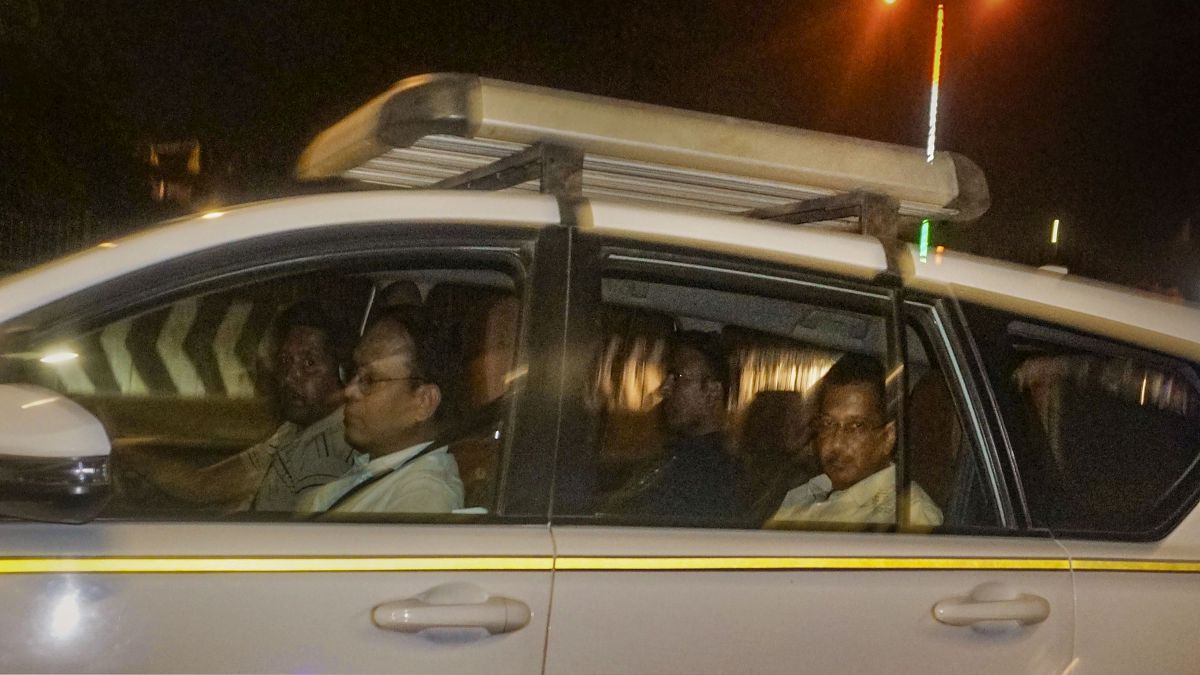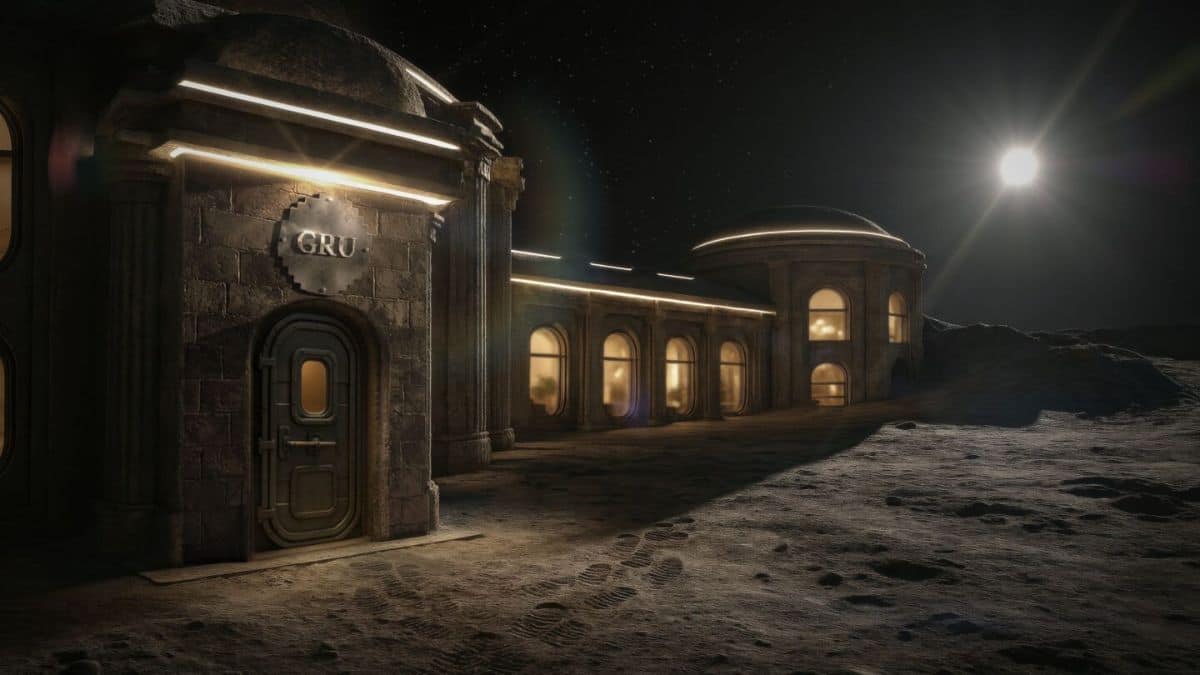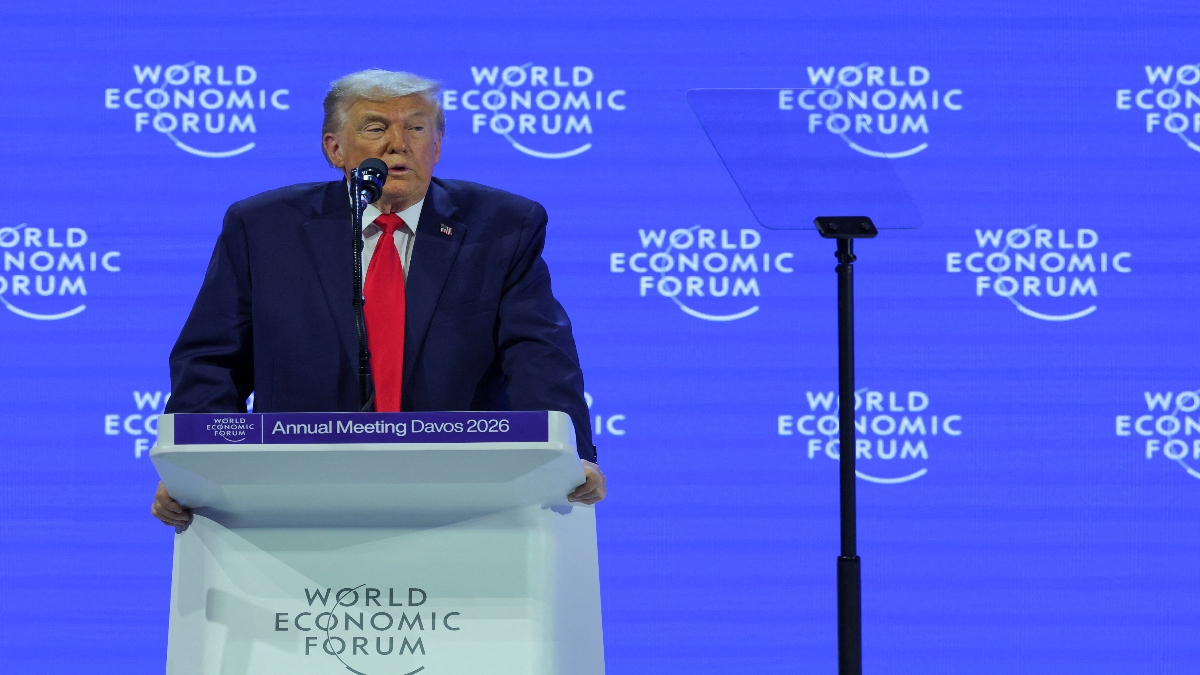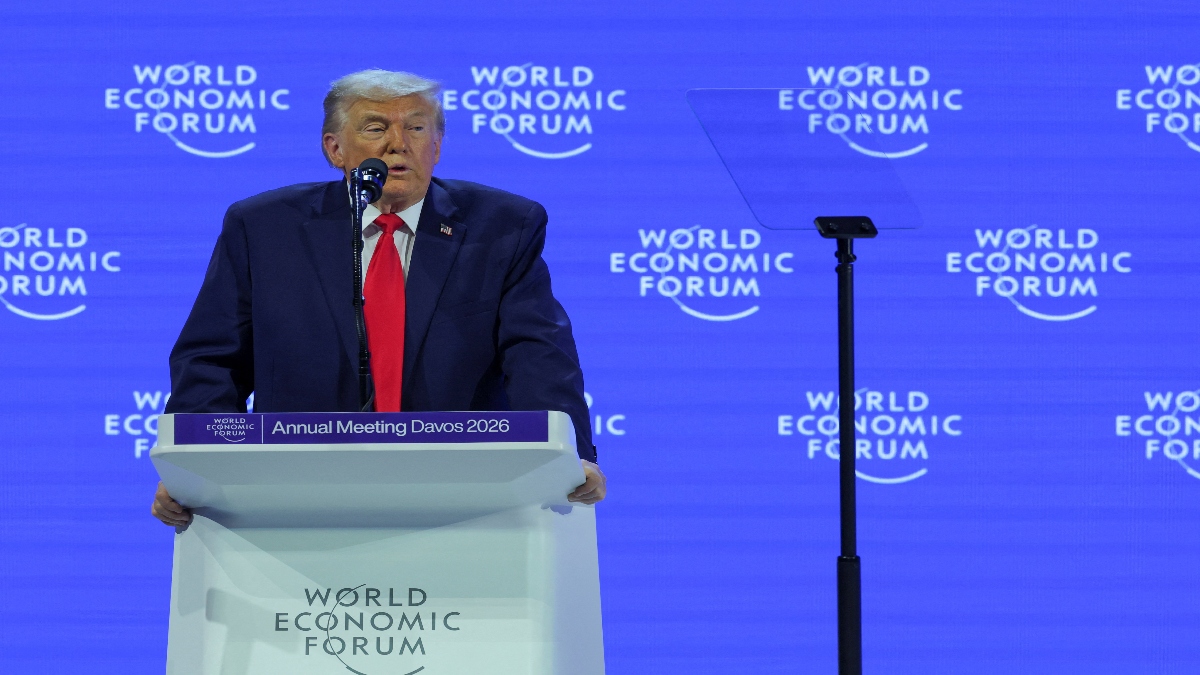After months of speculation and a night which was full of high drama, Delhi chief minister Arvind Kejriwal was arrested on Thursday night (21 March) by officials of the Enforcement Directorate (ED) in connection with the Delhi liquor policy case. With this, Kejriwal now holds the ‘honour’ of being the first sitting chief minister of Independent India to be arrested.
After being taken away by ED officials, the Delhi CM spent the night in an ED lock-up.
In the meantime, the Aam Aadmi Party (AAP) has given a call for a nationwide protest against the BJP, with Delhi unit convenor Gopal Rai terming the arrest as the “murder of democracy” and an “announcement of dictatorship.” “I appeal to the countrymen to protest outside BJP offices across the country against this dictatorship. We will gather at the AAP office at 10 am on Friday and then protest outside the BJP headquarters,” Rai, a minister in the Delhi government, said.
But what is the Delhi liquor policy case and how is Arvind Kejriwal linked to it? We get you all the answers.
Kejriwal’s dramatic arrest
On Thursday evening, a 10-member ED led by an additional director reached Arvind Kejriwal’s official residence on Flagstaff Road in Civil Lines in the national capital after the high court gave its orders in the matter.
Incidentally, the appearance of the ED officials at Kejriwal’s house came after he had been issued summons in the matter of the Delhi liquor policy case nine times. Kejriwal was then arrested by the ED around 9 pm, two hours after the officials had arrived at his residence. According to an NDTV report, his and his wife’s phones were confiscated and data from their two tablets as well as their laptop was transferred.
Quick Reads
View AllAs news emerged of his arrest, AAP leaders and supporters gathered outside his residence to protest. Delhi minister Atishi called the arrest a “conspiracy by the BJP and PM Narendra Modi” and said that Kejriwal would continue to be chief minister. “We have said from the beginning that he will run the government from jail if need be. He has not been convicted… No law stops him from doing so,” she said.
Amid high security and drama, the federal agency officials brought Kejriwal to their office in Delhi around 11.25 pm in an SUV. The chief minister was seen sitting in the rear seat of the vehicle wearing a white half-shirt. He was escorted by three ED officers.
A team of doctors and medics, called by the ED, conducted a basic check-up of Kejriwal as per the stipulated procedure undertaken for people arrested and kept in custody before production in court, the officials said.
In the hours following Kejriwal’s arrest, the AAP moved the Supreme Court to quash the arrest order. The apex court is likely to hear the matter today (22 March).
Kejriwal’s arrest also drew out reactions from various other opposition parties. They claimed that the BJP is scared of the outcome of the upcoming Lok Sabha polls and acting out of panic to create problems for the Opposition.
While the Congress president Mallikarjun Kharge said the “arrogant” Bharatiya Janata Party (BJP) is making false claims of victory every day and trying to weaken the Opposition by indulging in “illegal means” ahead of the parliamentary polls, Congress leader Rahul Gandhi alleged that a “scared dictator” wanted to create a dead democracy and said the INDIA bloc will give a befitting reply to such designs.
Delhi liquor policy case explained
Delhi CM and AAP leader Arvind Kejriwal’s arrest is all linked to the Delhi liquor policy case. But what exactly is it?
In 2021, the AAP government headed by Arvind Kejriwal brought in a series of changes to the liquor excise policy. The changes included granting store operation licences to private entities and removing the Delhi government from the business of selling liquor. It also included lowering the drinking age from 25 to 21 years and also proposed an increase in the annual liquor vending licence fee from Rs 8 lakh to Rs 75 lakh.
At the time, the Arvind Kejriwal government said it wanted to end the liquor mafia and black marketing, increase government revenue, and provide a better customer experience.
However, this policy didn’t last for long and was scrapped a year later on 1 September 2022. This action came after the Delhi chief secretary Naresh Kumar had submitted a report to the Lieutenant Governor (LG) Vinai Kumar Saxena in July earlier, pointing to alleged procedural lapses in the formulation of the policy.
Kumar’s report stated that decisions taken by then Delhi deputy chief minister Manish Sisodia as excise minister were “arbitrary” and had resulted in “financial losses to the exchequer” estimated at more than Rs 580 crore.
The report further alleged that AAP leaders received “kickbacks” from owners and operators of alcohol businesses for preferential treatment such as discounts and extensions in licence fee, waiver on penalties and relief due to disruptions caused by the COVID-19 pandemic, etc were used to “influence” the Assembly elections held in Punjab and Goa in early 2022.
It was then that Delhi lieutenant governor VK Saxena recommended a CBI probe. The CBI launched its investigations and raided Sisodia’s residence in August 2022. The agency named 15 individuals in its FIR filed in connection with the Delhi excise policy 2021-2022, with the AAP leader’s name on top.
The ED also joined the case to probe the money laundering allegations. Subsequently, other leaders and bigwigs were arrested with K Kavitha, Bharat Rashtra Samithi (BRS) leader and daughter of former Telangana chief minister K Chandrasekhar Rao, being the most recent arrest.
Kejriwal’s link to the case
So, how is the Delhi chief minister connected to the case and what are the charges being made by the ED against Kejriwal?
The ED alleges that a conspiracy was hatched by political leaders including Arvind Kejriwal, Manish Sisodia and K Kavitha (arrested last week) among others in the Delhi excise policy.
The agency alleges that the leaders formulated a liquor policy would benefit a liquor lobby from southern India, which the ED had called the ‘South Lobby’, reports NDTV. For this, the ‘South Lobby’ would give the AAP Rs 100 crore, alleged the ED.
In fact, after arresting K Kavitha last week, the ED spokesperson said, “ED investigation revealed that Ms K Kavitha along with others conspired with the top leaders of AAP including Arvind Kejriwal and Manish Sisodia for getting favours in the Delhi excise policy formulation and implementation. In exchange for these favours, she was involved in paying Rs 100 crore to the leaders of AAP.
“By the acts of corruption and conspiracy in the formulation and implementation of Delhi Excise Policy 2021-22, a continuous stream of illegal funds in the form of kickback from the wholesalers was generated for AAP.”
The probe agency also alleges that Vijay Nair, AAP media and communications in-charge and an accused in the case, facilitated meetings between liquor traders and Kejriwal. In fact, it was Nair who had arranged a meeting between the owner of Indospirit Group Sameer Mahendru and the Delhi CM. When the meeting did not materialise, Nair arranged a “FaceTime” call where Kejriwal allegedly told Mahendru that Nair was “his boy” and that he should trust him.
There’s also the recorded statement of C Arvind, an officer of Danics (Delhi, Andaman & Nicobar, Lakshadweep, Daman and Diu and Dadra and. Nagar Haveli (Civil) Services) and secretary to Sisodia. Arvind in his recorded statement said that he was called to the residence of Kejriwal by his boss Sisodia where he was handed over the “draft group of ministers (GoM)” report, the new excise policy that was allegedly tweaked to benefit the liquor cartel.
In February last year, the ED also grilled Kejriwal’s personal assistant (PA) Bibhav Kumar on allegations that he had destroyed and concealed evidence, among other things, in the Delhi excise scam. The ED alleges that Kumar and other accused either destroyed or changed SIM cards and 170 phone numbers to conceal facts in the Delhi excise policy case and moreover facilitated meetings and interactions between the accused and Delhi chief minister Kejriwal.
Based on this, the ED issued a summons — a total of nine — for Kejriwal. However, he skipped them, calling them motivated and at the behest of the BJP.
With inputs from agencies


)

)
)
)
)
)
)
)
)



